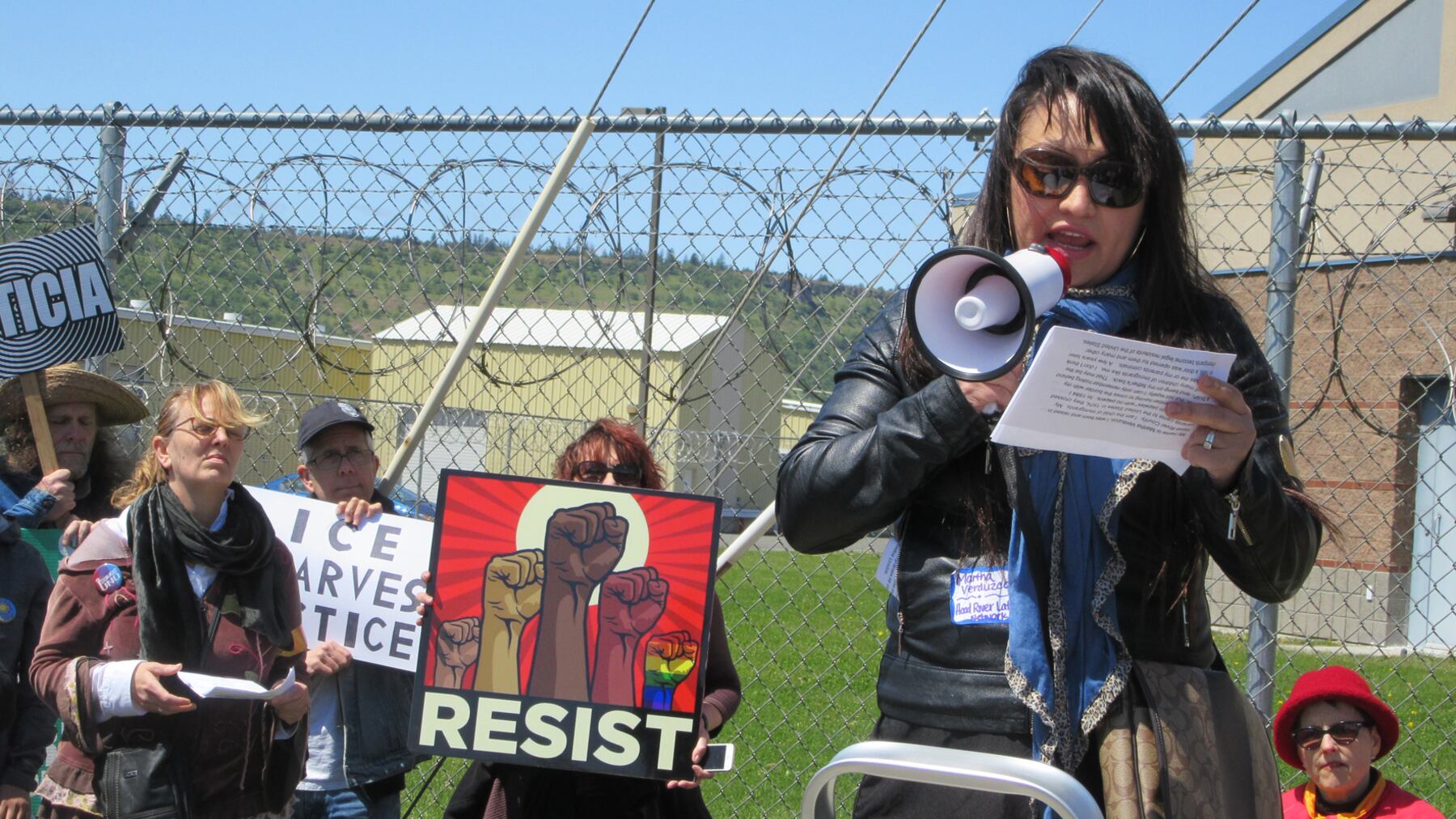When undocumented immigrants are arrested in Oregon, they're typically sent to Tacoma, Wash., to await deportation. But increasingly, they're being kept in an Oregon jail—a destination that civil liberties experts say violates state law.
Eighty-five miles east of Portland, an unknown number of immigrants are being jailed in a windowless, single-story beige box surrounded by barbed wire in an industrial district at the eastern end of the Columbia River Gorge.
This is the Northern Oregon Regional Correctional Facility, better known as NORCOR, in The Dalles. This county-run jail was not designed as a pit stop for people facing deportation, but that's what it has become.
NORCOR's board, comprising elected commissioners and sheriffs from the four counties that fund the jail—Wasco, Hood River, Sherman and Gilliam—has had an agreement since 2012 with U.S. Immigration and Customs Enforcement to take in the human overflow from the agency's privately run Northwest Detention Center in Tacoma.
NORCOR currently allocates 40 beds to ICE detainees, but that number could increase. Budget documents show administrators expect ICE's contribution to NORCOR's $8 million budget to nearly double—increasing from $579,000 to $1 million in the fiscal year starting July 1. (On May 16, voters in the four counties will be asked to approve a $1.3 million annual property tax measure to continue subsidizing the jail.)
NORCOR administrator Bryan Brandenburg says ICE detainees are treated the same as other inmates at the facility. But immigration activists contend inmates are sent from Tacoma to NORCOR as a form of punishment.
"We suspect at least one was transferred down because of his role as an organizer in the [Tacoma hunger] strike," says Mat dos Santos, legal director for American Civil Liberties Union of Oregon.
That appears to be how the hunger strike over conditions for ICE inmates in Tacoma that began April 10 migrated to The Dalles this month. The NORCOR strikers want hot food and in-person family visits (now restricted to a costly private video-conferencing system).
Activists also say NORCOR is violating Oregon's 1987 sanctuary law, which forbids state and local resources from being used to "detect or apprehend" people who may have violated federal immigration rules.
Last week, a spokeswoman for Oregon Attorney General Ellen Rosenblum told the Associated Press the law did not apply to NORCOR's deal with ICE because "it doesn't appear that NORCOR resources are being used to detect or arrest people."
Dos Santos says the Attorney General's Office is wrong to defend NORCOR's arrangement with ICE. "We think it's a clear violation of state law for a local facility to house ICE detainees," dos Santos says. "Apprehend," he argues, not only means "arrest"—it also means "detain."
Kristina Edmunson, Rosenblum's spokeswoman, tells WW the attorney general's statement represented a "preliminary finding," and the DOJ has "not been asked to provide formal legal advice" regarding NORCOR's contract with ICE. "If requested," Edmunson adds, "the AG could also look into substandard conditions in county jail facilities." (Disclosure: Rosenblum is married to a co-owner of WW's parent company.)
Every day since May 1, a group of a few dozen local activists has stood vigil outside NORCOR. On May 6, 150 activists, some from as far away as Lake Oswego, rallied outside the facility. The day before, several NORCOR inmates called off their hunger strike on its sixth day after jail administrators offered to supply a microwave oven.
At the rally, activist Rosanna Schneider of the Gorge ICE Resistance read a statement from one of the hunger strikers inside NORCOR. "Nothing has changed in here," it said. "If they don't change, we will probably go back on strike. We haven't given up, we are just giving them time."

